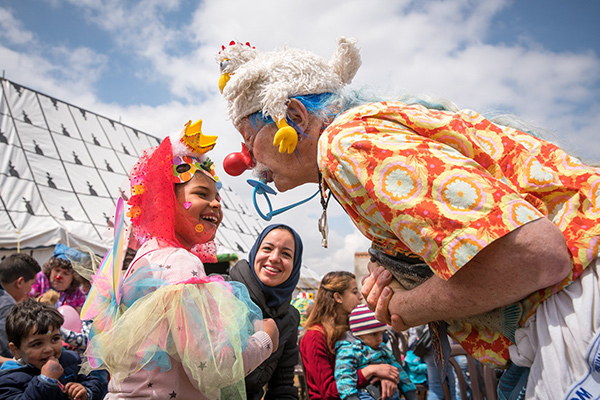Seven Years, Seven Themes
By Carl Hammerschlag, MD
We all agree that our educational focus is how doctors must make more loving connections with patients; that touching the hearts of patients who place themselves in their hands is as important as studying the technology of medicine; that the current medical school teaching model attributes our successes to the genius of our science and instrumentation, but minimizes the importance of compassionate, loving connections that inspire the human spirit. This curriculum will teach students to be more than dispassionate clinical observers, and become totally involved in the healing process.
I suggest the following framework (I think the first year should be mandatory):
I. there be a theme for each of the seven years, and an accompanying reading list that explores the theme
II. a mentor with whom students can meet regularly to discuss those readings
III. there must always be an experiential component
IV. And every year throughout the 7 years, a place where the students can process the material and teach us how the program evolves (perhaps a leaderless “T” group model); and they must keep a journal
Themes
Year One: Health and Healing (this was never defined in my medical school).
Students will explore the ways cultures have defined health and pursued healing since antiquity (always on a loving, connection-based experience). The reading list should include Ari Kiev, Jerome Frank, C.G. Jung, Joseph Campbell, Black Elk, etc. The experiential component for the year would include inviting a wide array of healing practitioners representing many disciplines (medicine man, chiropractors, energy medicine practitioners, body workers (from Feldenkreis to Reich), etc.)
Year Two: Altered States of Consciousness.
Students will explore ways to opening channels into the unconscious mind that allow them to see beyond the ordinary that can be helpful in promoting healing (meditation, trance states, psychoanalysis, clowning, and current research in the use of entheogens to PTSD, OCD, and addictions). The reading list will include Milton Erickson, Freud, Mesmer, Jesus, Buddha, Dalai Lama, Lao Tzu, Timothy Leary, Ram Dass, Brad Keeney, Mark Plotkin, the MAPS Journal, etc. The experiential component would include experiences with indigenous shaman, and other experts in altered states of consciousness (hypnotherapists, channelers, handtremblers, magicians, crystal gazers, ecstatic dancers)
Year Three: The Healer/Magician/Sacred Clown Archetype
This year explores the many masks doctors have worn to intensify their healing power. The readings/viewings would include CG Jung, the Marx Brothers, Joseph Campbell, Shakespeare, Patch Adams, the poets, etc. The experiential component this year would be learning how to clown.
Year Four: The Psychobiology of Love
This year explores the neuroscience of love and compassion; understanding the mechanisms in the brain that illumine loving encounters. The readings would include Norman Doidge, Antonio Dimasio, E. Wilson, Mother Teresa, Dalai Lama, and all the poets, etc. The experiential involvement would be to challenge students to explore all the ways in which they can make loving connections this year (hugging, massage, energy work, clowning, drumming (Murga), puppetry, teaching dance/ drumming (Murga), etc.
Year Five: Healing in Community
Modern medicine excels in privacy… private rooms, privacy rules, where everything is kept hush-hush. We actually heal better in community, because when lots of people share an interest in a patient’s outcome, it actually makes a good outcome more likely. The readings would include Maturana, Harlow, Maslow, Hammerschlag, the loneliness literature, etc. The experiential component would be to spend this year in a healing community… (intentional, AIDS shelter, rehab centers, hospices, orphanages, Gesundheit!, etc).
Year Six: Becoming a Healer
This year’s students get to apply all the prerequisite material they’ve acquired, to create their own healing repertoire. Students will incorporate those things that make sense to them, and seek out a specialty they’d like to explore in depth. The reading list would be theirs to choose (they have to tell us what they are reading and respond to our suggestions). The experiential component is to apprentice themselves to a teacher/mentor/healer, who at the end of the year, would give them their blessing.
Year Seven: The Hero’s Journey
This is the year students go on the road to tell their story publicly. They complete their journals (books by now) and present their experience to international audiences. At the medical school graduation the student will be blessed in ceremony and declared a compassionate healer.







